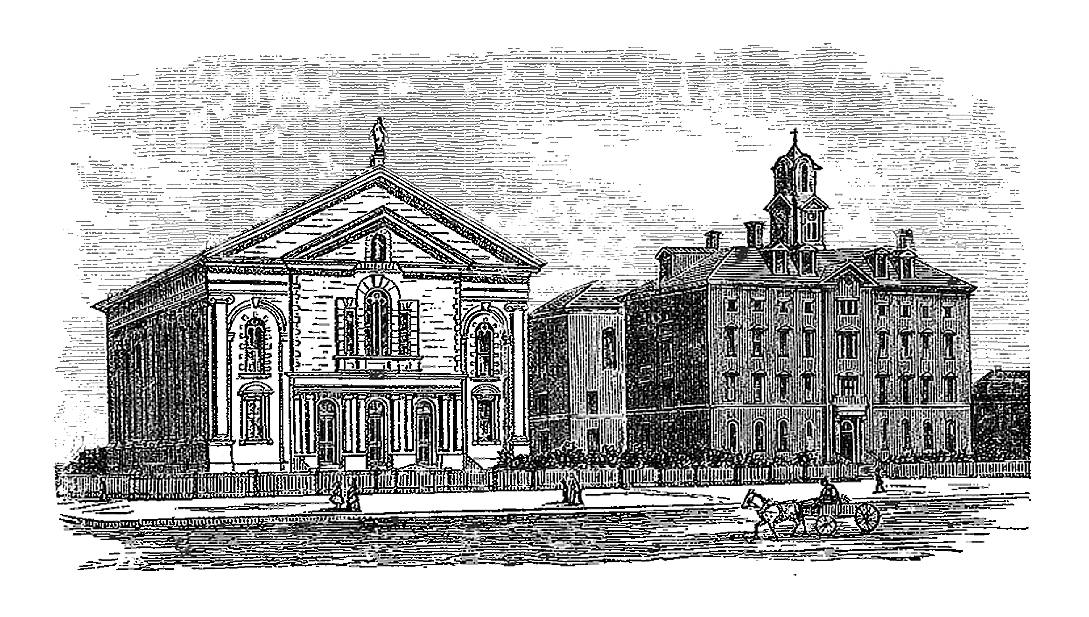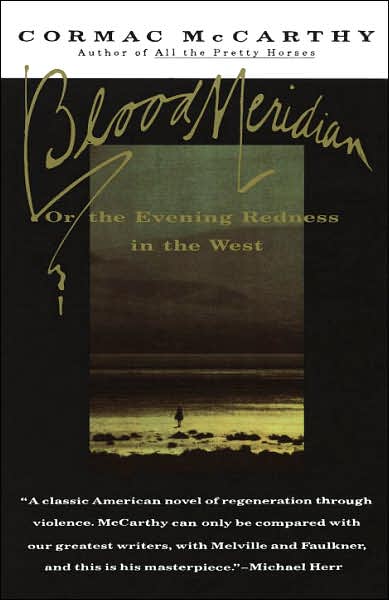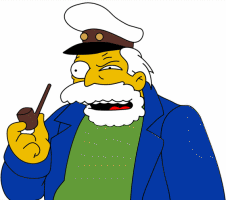Literary Allusion
The allusion in Blood Meridian varies from specific quotes from well-known poems, to parallels in structure from well-known plots. I argue that the language surrounding these parallels echoes that of the original work so much that they become allusive rather than just similar in structure. By that I mean that McCarthy is inviting us to make these referenced works part of his work.
1. The Bible
His folk are known for hewers of wood and drawers of water but in truth his father has been a schoolmaster (3).
Now therefore, you are cursed, and you shall never cease being slaves, both hewers of wood and drawers of water for the house of my God.
Joshua 9:23.
He adduced for their consideration references to the children of Ham...(84).
This is significant. According to the Bible, Ham was the son of Noah who was cursed after gazing upon his naked father. I think this is important because in looking upon his naked father, Ham is seeing where he came from, seeing the mystery of his origin. This is a small detail, but I'll argue that we as humans are cursed for gazing upon our origin in the form of written history, or when we view history as a means to access the past.
2. William Wordsworth
My Heart Leaps Up When I Behold
My heart leaps up when I behold
A rainbow in the sky:
So was it when my life began,
So is it now I am a man,
So be it when I shall grow old
Or let me die!
The Child is father of the Man:
And I could wish my days to be
Bound each to each by natural piety.
All history present in that visage, the child the father of the man (BM 3).
Again we have the allusion coupled with a reference to history. But the sentence before the above reads: "in him broods already a taste for mindless violence." McCarthy's child is vastly different from the one of Wordsworth's poem. Wordsworth's child is naturally innocent, and believes in natural piety. McCarthy's is inherently stained by the history of human violence: "all history present in that visage," this child is human history, and human history is stained by blood. This is only one of the many instances where McCarthy pairs violence with children. In the first description we ever see of the Judge, he is "serene and strangely childlike," (BM 7). In the last description we have of him, he is an "enormous infant," (BM 335). McCarthy does this to define evil and "mindless violence" as something inherent as the innocence of Wordsworth's child.
3. Moby-Dick (MD will be blue/BM red)
a. Structure
The kid as Ishmael. But in the case of the kid, we don't have an access to thoughts like we do with Ishmael. This is evident in both novels opening lines:
Call me Ishmael. A personal, inviting, charismatic opening.
See the child. A distant, detached, observational based opening.
Judge Holden as Ahab.
Holden and Ahab are both men of great ideals but questionable morals. Ahab's monomaniacal quest is summed up below:
The White Whale swam before him as the monomaniac incarnation of all those malicious agencies which some deep men feel eating in them, till they are left living on with half a heart and half a lung. That intangible malignity which has been from the beginning; to whose dominion even the modern Christians ascribe one-half of the worlds; which the ancient Ophites of the east reverenced in their statue devil; -- Ahab did not fall down and worship it like them; but deliriously transferring its idea to the abhorred white whale, he pitted himself, all mutilated, against it (MD 198).
The Judge's:
War is the truest form of divination. It is the testing of one's will and the will of another within that larger will which because it binds them is therefore forced to select. War is the ultimate
game because war is at least a forcing of the unity of existence. War is god (BM 249).
One last thing. The overall plot structure of the two novels is comparable. Both begin with a young man on a journey who meets a mysterious but charismatic leader. Then the leader takes center stage for a good chunk of the novel while the young men fade. Then towards the end both character's importance becomes clear: Ishmael as the carrier of Ahab's story, and the kid as a force against the Judge :"Yet even so you could have changed it all," (BM 307.)
Moby-Dick: Passages
Prophets:
Shipmates, have ye shipped in that ship?" The above words were put to us by a stranger, who, pausing before us, levelled his massive forefinger at the vessel in question. He was but shabbily apparelled in faded jacket and patched trowsers (MD 108).
A thin man in a leather weskit, a black and straightbrim hat set square on his head, a thin rim of whiskers...Do ye cross that river with yon filibuster armed ye'll not cross it back...ye carry war of a madman's making onto a foreign land (BM 41).
As you can see, the language and description of the Mennonite is reminiscent of Elijah, the prophet of Moby-Dick.
Killing the leader:
Slowly, stealthily, and half sideways looking, [Starbuck] placed the loaded musket's end against
the door...he placed the death-tube in its rack and left the place (MD 529).
Toadvine put the muzzle of his pistol against the great dome of the judge's head.
Goddam you, Holden.
You either shoot or take that away. Do it now.
Toadvine put the pistol in his belt. The judge smiled and wiped the scalp on the leg of his trousers and rose and turned away (BM 164).
Here is a moment that aligns Ahab, the maniacal leader of the Pequod, with Holden, the maniac of The Glanton Gang. Both Toadvine and the wise Starbuck are faced with a puzzle of morality: Do you kill the leader of an evil and doomed voyage if given the chance? Both characters, under the weight of moral complexity, choose not to.
So think about this: what purpose do these allusions serve?
Wednesday, June 3, 2009
Subscribe to:
Post Comments (Atom)





No comments:
Post a Comment